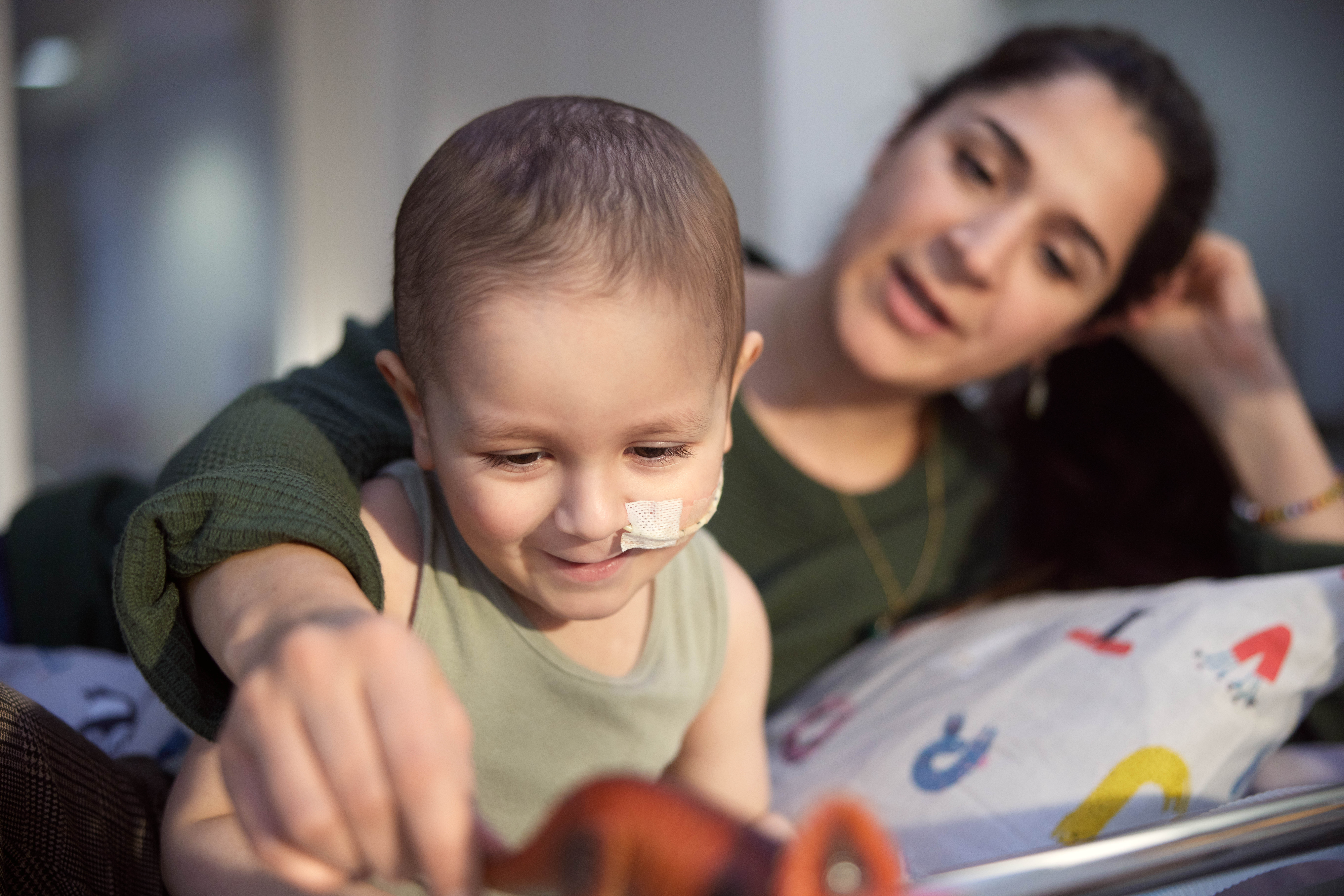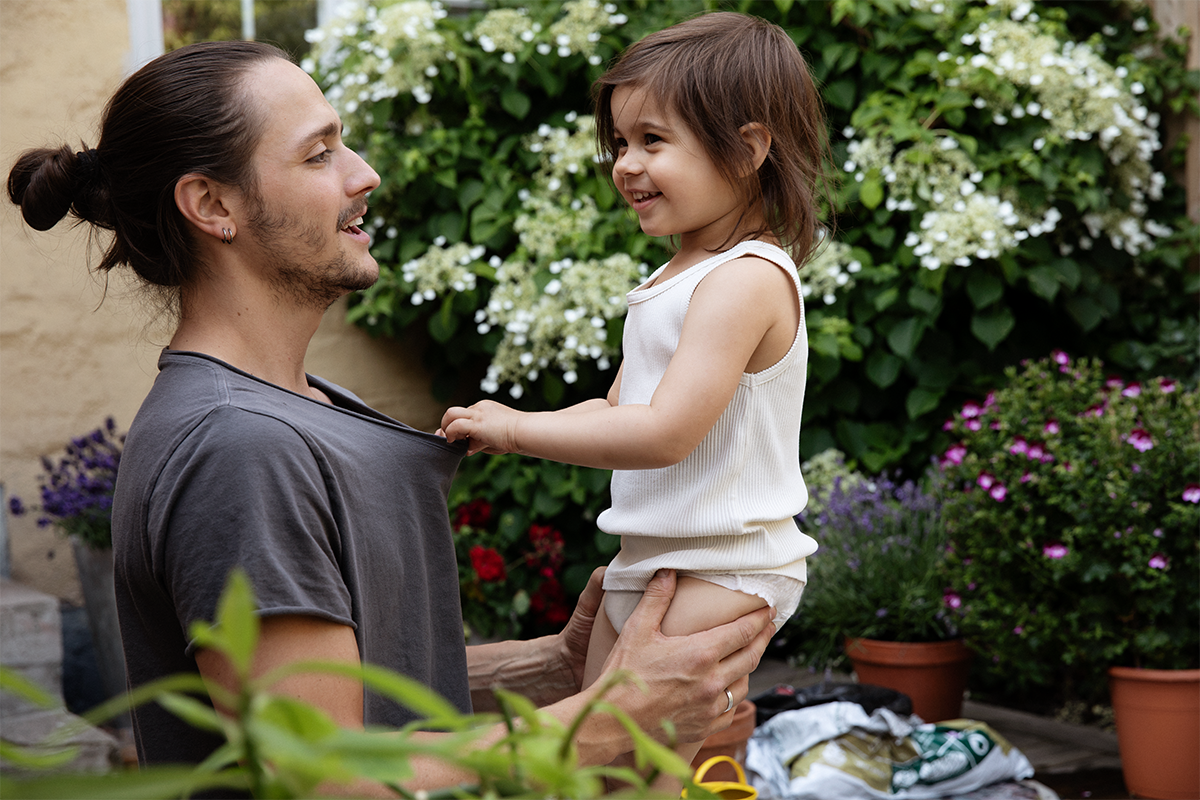
Tips on dealing with grief, worry and uncertainty in life
It is an unavoidable part of parenthood to constantly worry that something will happen to your child. And unfortunately, for some parents, something does actually happen to their child, causing life to take a completely unexpected turn and challenge them in every imaginable way. Here are some tips on how to deal with such a situation.
Even though there may already have been concern about the child’s condition prior to receiving confirmation, it is still usually a very upsetting and tough period when it is confirmed that your child is facing a difficult situation. It is completely normal to feel that your entire world has been turned upside down, and that your previously secure life has now become uncertain and frightening.
Different reactions to difficult news
We all react differently when we receive difficult news, and we have different strategies for dealing with the new challenge we are facing. Some of us become very action-oriented and focused on finding solutions, while others become passive, resigned and perhaps overwhelmed with sadness. Some people immediately seek the support of others, while some need time to take in and think about the new situation on their own before they are ready to share information and their thoughts with those around them. Neither approach is right or wrong – we are all simply different as individuals.
That said, these different ways of reacting to difficult news can sometimes cause issues between relatives, as they find it hard to understand each other’s reactions. It can therefore be important to know and remember that no particular type of reaction is better or worse than another. The person behind the reaction is still experiencing the same worry, despair and grief – it’s just that we, as individuals, act and react in different ways.
Children’s reactions
Just like adults, children also react very differently when they find out that they have an illness or some other life-affecting condition. Some just shrug their shoulders and continue playing with their toys, while others become worried and have a great need to talk about what the new situation means and what the future will hold. Once again, no particular reaction is more right or wrong than the other. As a parent, you can help your child by finding the right words to describe what is happening, and by making everything understandable for your child. There is often no need to go into too much detail, unless the child actually expresses a desire to know more. Generally, a simple, honest and clear description of what is happening and will happen is usually the best type of information for young children.
Another thing you, as a parent, can do to help your child is to de-prioritise other aspects of life during the acute phase, when everything is new and takes a lot of energy. It is usually good for the whole family if everyday life can be put on hold for a while so that, together, you can come to terms with the new challenge you are facing. Children are quick to sense when their parents are worried, and at such times they need to be closer to their parents, while for parents it is extremely tiring to have to deal with so much anxiety and grief, and they therefore need more rest than usual. Therefore, when something difficult has happened, it is often a good idea to take a break, if possible, from the other parts of life for a while.
How can we learn to deal with uncertainty?
When something difficult has happened to your child, one of the biggest challenges involves dealing with the uncertainty of the future you are facing. A thousand questions and thoughts swirl around in your head, and you are tossed between hope and despair. There is a lot of information to be digested, and the more you read, the more you also find out about all the terrible things that could happen.
As a parent, it is easy to end up in a situation where you try to create a sense of control by pondering and worrying and trying to think of and analyse all possible scenarios. This is a completely natural reaction that can have positive effects to some extent, but the negative effect may be that you end up getting stuck in a state of anxiety that takes an enormous amount of energy. Anxiety in itself serves no purpose and does not help the situation – it just steals energy that could be used for other things. Relaxation techniques, socialising with others, exercise and distractions in the form of entertainment are all examples of things that can help break a destructive state of anxiety when it takes over too much.
Sometimes it may also be necessary to seek professional help in order to discuss and break negative patterns of anxiety. Many children’s hospitals have counsellors and psychologists, so if you have not already been offered such support, ask the healthcare staff about the types of help and support that are available. In many towns and cities there are also other organisations that are set up to listen and provide support in crisis situations, so try to find out about the support that is available in the area where you live.
Allow yourself time to grieve for the life that never was
The process that follows the receipt of difficult news concerning your child often involves a certain amount of grief, regardless of how serious the situation is. Not only is there grief concerning the difficult situation your child must now face, there is also grief over the fact that life has not “followed the plan” – that your family’s life has taken an unexpected and unintended turn. It can sometimes feel shameful to grieve even though your child will be okay, but grief is a healthy part of processing a difficult situation. When you are faced with change, you need to let go of the old and get used to the new, and there may be a need to grieve at such times, not only for how things have turned out, but also for the life that never was and the way you wanted things to be. You may experience grief over the difficult times ahead for your child, and grief over the difficult times ahead for yourself. At such times, it is important to remember that grief in itself is not bad – it helps us move on and brings us closer to acceptance of the new situation we are facing.
Siblings of a sick child
If there are siblings in the family, they too face a difficult time when their brother or sister has suffered an illness or has otherwise been affected by a life-changing condition. Just like parents, siblings may also feel a lot of worry and sadness regarding the situation, but it is just as common for them to feel angry or disappointed with their parents for placing so much focus on their sick brother or sister. It is completely natural and sound for children who have perceived their parents to be physically or emotionally absent for an extended period of time to react with frustration and behave in a manner that makes it necessary for their parents to focus on them as well. Although this is extremely taxing for worn-out parents, it is beneficial for siblings who haven’t really had their needs properly met for a while.
As a parent, one way to help the siblings in the family is to try to find the words to describe what is happening around them at this time. For example, you could say something like: “Things are difficult for us as a family right now, because everyone is so worried and sad. But everything will be better again soon – we just need to get through this difficult period first”. It could also be nice for the siblings if you involve them in what is happening, for example by explaining why you have to spend so much time away at the hospital at the moment. But try to keep your explanation to a suitable and understandable level, depending on the age of the sibling. Try to be honest and clear, without exaggerating or going into too much detail – and try talking about something else instead if the sibling is not interested in listening or knowing more.
It is important to be aware – and also to remind yourself from time to time – that children do not have the capacity to hold back their own needs. Rather, they must be afforded the scope to develop and thrive. For children, it doesn’t matter whether or not they have a sick sibling – their primary need is to get their parents to understand what they need, want and don’t want. This has nothing to do with egoism or being selfish, but rather the innate human drive to survive and experience joy in life.
Finding your way in your new life
After a dizzying period of change, everyday life eventually returns again, but in a new form. Perhaps your entire life must be adapted to your child’s new needs, or perhaps most things can just continue as usual – even though life probably feels anything but usual at this time. For parents who have experienced a situation in which their child has suffered an illness or has otherwise been affected by some life-changing condition, things can often feel very challenging for a long time afterwards. Even if the acute phase is over and you have now entered the next phase involving your new life situation, feelings of insecurity, worry, stress and anger can still remain for a long time. If you are a couple, your relationship may have come under enormous strain, or perhaps you simply don’t have any energy left. Having faced a parent’s greatest fear, perhaps you will never feel completely calm and relaxed again. However, in most cases, everyday life eventually returns and brings with it the habits, routines, laughter, socialising, cosy Friday evenings curled up on the sofa, fun Saturdays that end with a bag of delicious candy, work, dirty dishes and everything else that makes life what it is. And amidst this throng of everyday activities and events, a new version of life is created that is able to accommodate both the uncomplicated and joyful nature of family life and the fragile trembling of a parent’s heart.
Please note that all information above is based on Swedish recommendations.


